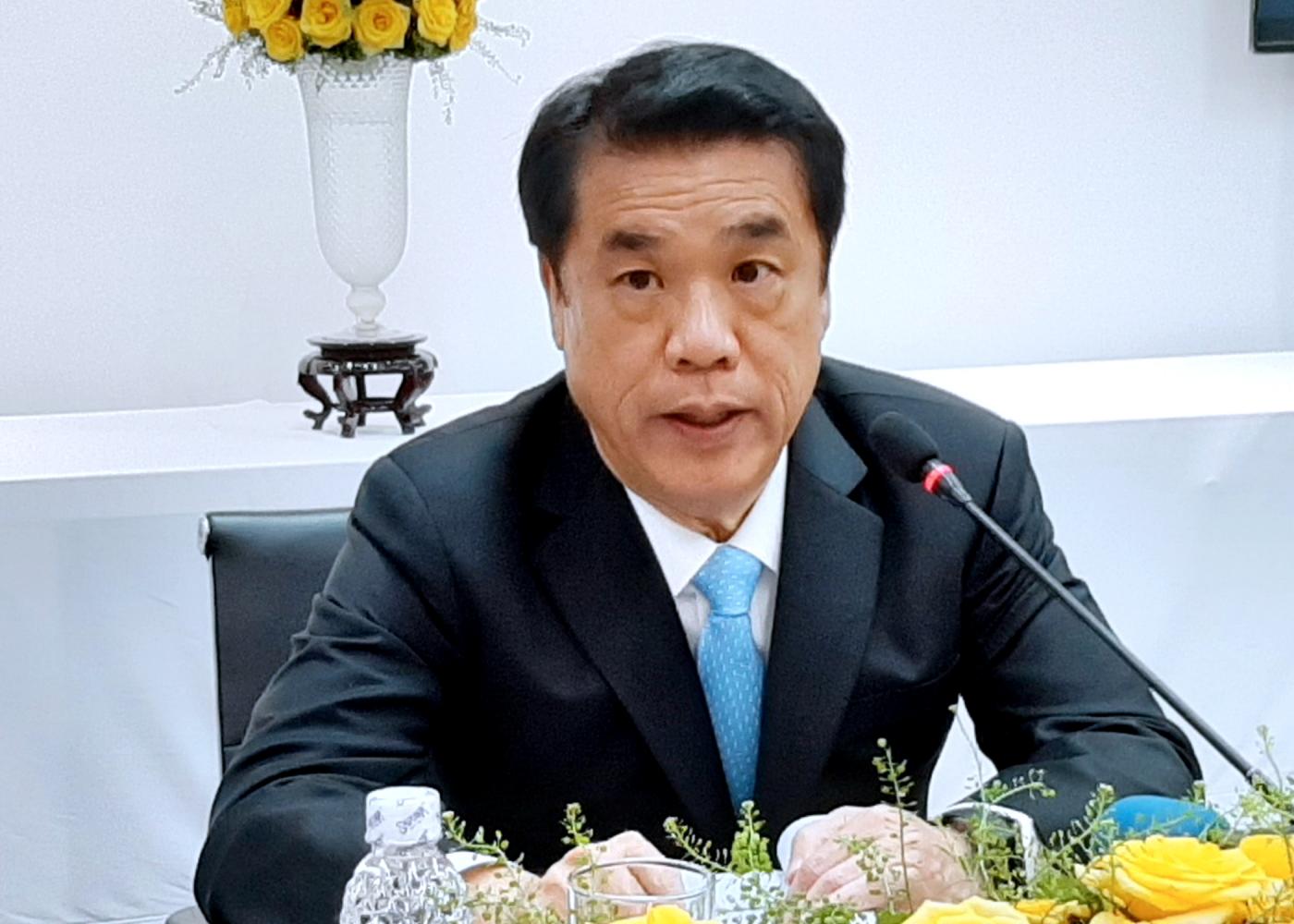
The Industry Ministry has ordered the Office of Industrial Economics to finish crafting incentive packages within two weeks to persuade foreign investors to relocate from China into Thailand.
Industry Minister Suriya Jungrungreangkit said the ministry met with a Thai company that has invested in Vietnam, CP Vietnam Group, and the Board of Investment's (BoI) branch in Vietnam to find how Vietnam is attracting so much more investment and business than Thailand following the fallout from the US-China trade war.
The Thai government is seeking the best array of incentives to attract companies fleeing US tariffs and has been faced with stiff competition from Vietnam.
"The government does not think of Vietnam as an enemy in terms of economic investment and is not concerned that Thailand will lose our rank in Asean in terms of investment to Vietnam," said Mr Suriya.
The government expects Thailand and Vietnam can be economic partners to develop and draw investment to Asean by serving the new wave of businesses moving out of China to escape the effects of the trade war.
"The trade war is an opportunity for all Asean countries to cooperate and welcome investors to the region," he said.
Vietnam has booming economic growth, especially in industry because of cheap mass labour, free rent of land in industrial estates and a large population of 95 million.
Thailand, Vietnam and Indonesia are major investment destinations in Asean for foreign investors looking to expand their investment opportunities in the region.
Mr Suriya said the relocation incentive packages are an urgent measure to stimulate economic growth in the short term at a time when Thailand's economic growth is slowing, nearing recession territory.
SHORT-TERM BANDAGE
The government wants the window for relocation packages inviting investors into Thailand to be offered for a short span, forcing them to make a quick decision to enter the country.
"[The packages] should not last over one year for foreign investments and the government, state agencies and related departments should ease regulations or laws in order to support quick investment by reducing burdens for investors interested in Thailand," he said.
The packages need to offer an expedient process for investors to leave China and set up their manufacturing base or other businesses in Thailand, especially before the situation changes and China is again a safe place to invest.
The Industry Minister said the government expects large-sized companies that want to move out of China will bring small and medium-sized enterprises (SMEs) along with them into Thailand and Asean.
The government plans to build an SME industrial estate to serve only SMEs because some companies cannot afford to invest a sizeable portion of their budget in new areas.
"The ministry has ordered the Industrial Estate Authority of Thailand [IEAT] to conduct a feasibility study of the new industrial estate to serve and support SMEs, which will include both Thai and foreign SMEs," he said.
SEALING NEW FTAs
Mr Suriya said Thailand should speed up negotiations of free trade agreements (FTAs) to support the economy in the long term.
Thailand's industry faces many challenges and needs more economic mechanisms to push forward domestic growth in the long term to keep up with the outpaced growth of neighbouring countries.
"The group of Cambodia, Laos, Myanmar and Vietnam has an advantage over Thailand as some countries have a free trade area between cooperating states under an FTA to support their economy and industry," he said.
An FTA between Thailand and the EU will be a key advent, allowing the domestic economy and Thai businesses to expand into new markets.
The last round of negotiations with the EU were put on hold after the 2014 coup as the EU only conducts trade negotiations with democratically elected governments.
CALLS FOR INNOVATION
The government is promoting 12 targeted S-curve industries pertaining to digital technologies to promote the development of advanced technologies and spur innovation. These industries need a high-skilled labour force.
"Thai industrial businesses should adjust to new technology that is disruptive to the industry," Mr Suriya said. "When comparing Thailand's industry with neighbouring countries, Thailand can't compete because of labour shortages and high wages."
The 12 promoted industries include next-generation automotive, intelligent electronics, advance agriculture and biotechnology, aviation and logistics, medical and comprehensive healthcare, biofuel and biochemicals, food processing, high value and medical tourism, automations and robotics, digital, defence technology industry and educational technology.
Chokedee Kaewsang, deputy secretary-general of the BoI, said Thailand has many strong advantages as a good location in Asean, good infrastructure for air, road, shipping and railways to serve investment.
"The most important thing is that Thailand's still the top investment country in Asean," he said. "Thailand has a sustainable investment policy that remains unchanged despite the revolving door of political parties and interests."
The BoI expects the new incentive packages will boost the value of investment in 2019 to reach the target of 750 billion baht and expects foreign direct investment to increase.